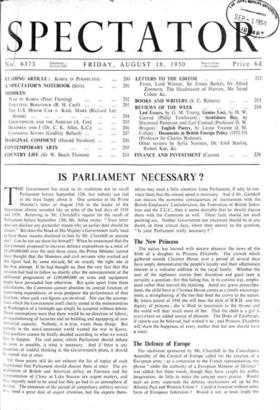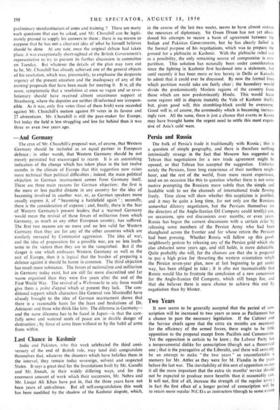The Defence of Europe
The resolution sponsored by Mr. Churchill in the Consultative Assembly of the Council of Europe called for the creation of a European army ; as a concession to the French representatives, the phrase " under the authority of a European Minister of Defence " was added, but these words, though they have caught the public imagination, do little to make the concept more precise. Would such an army supersede the defence mechanisms set up by the Atlantic Pact and Western Union ? Could it function without some form of European federation ? Would it not, at least, imply the
preliminary standardisation of arms and training ? There are many such questions that can be asked, and Mr. Churchill can be legiti- mately pressed to supply his answers to them ; there is no reason to suppose that he has not a clear-cut idea of what he himself believes should be done. At any rate, once the original debate had taken place, it was exceptionally short-sighted of the British Government's representative to try to prevent its further discussion in committee on Tuesday. But whatever the details of the plan may turn out to be, Mr. Churchill has already achieved one of the general objects of his resolution, which was, presumably, to emphasise the desperate urgency of the present situation and the inadequacy of any of the existing proposals that have been made for meeting it. It is, all the same, symptomatic that a resolution at once so vague and so revo- lutionary should have received almost unanimous support at Strasbourg, where the deputies are neither ill-informed nor irrespon- sible. As it was, only five votes (four of them Irish) were recorded against Mr. Churchill's motion against 89 votes in its favour and 27 abstentions. Mr. Churchill is still the pace-maker for Europe, but today the field is less straggling and less far behind than it was three or even two years ago.



































 Previous page
Previous page